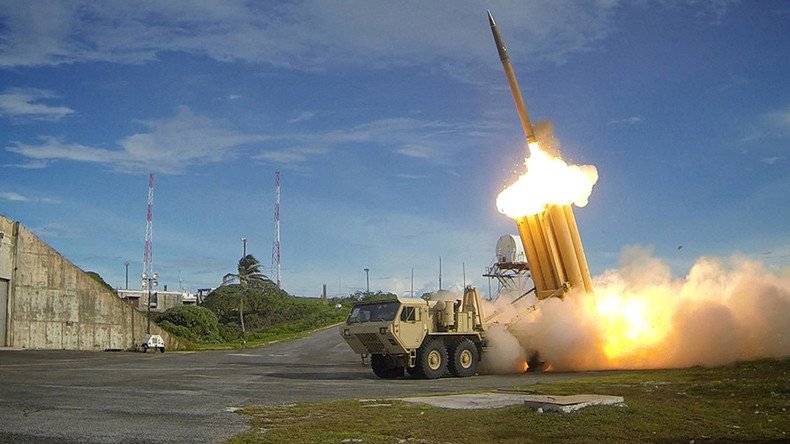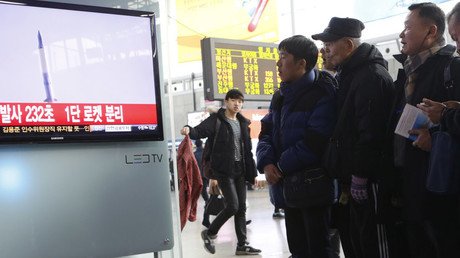'Joint decision': US to deploy missile defense to S. Korea in face of growing N. Korea threat

The US will deploy a high-tech antiballistic-missile system to South Korea “as soon as possible” now that the allies have reached an agreement. The advanced air defense shield will beef up Seoul’s arsenal amid growing nuclear and missile threats from the North.
"South Korea and the US have made the joint decision to deploy the THAAD system with US Forces Korea as part of a defensive action to guarantee the security of the Republic of Korea and our people from North Korea's nuclear weapons, weapons of mass destruction and ballistic missile threats," the Ministry of National Defense said on Friday.
THAAD stands for the Terminal High Altitude Area Defense, an advanced system that is designed to intercept short, medium, and intermediate-range ballistic missiles during their terminal phase of flight. Equipped with a long-range radar, THAAD is believed to be capable of intercepting Pyongyang’s intermediate-range ballistic missiles.
"South Korea and the US are working closely together to deploy the THAAD system as soon as possible," the ministry said. The two countries are in the final stages of selecting the site to station the system. According to South Korea’s Yonhap news agency, the system is expected to be in operation by the end of 2017 at the latest.
The agreement between Seoul and Washington ends five months of negotiations that started hours after North Korea claimed to have successfully launched an earth observation satellite into orbit in February. However, on an international level it was widely suspected to have been a potential long-range missile test.
READ MORE: N. Korea claims successful ‘observation satellite’ launch aboard ‘long-range missile’
Since then, Pyongyang has conducted several launch-tests, including two in late June when it presumably fired Musudan intermediate-range ballistic missiles (also known as Hwasong-10).
THAAD’s deployment on South Korean soil has been of particular concern to China. The country has strongly opposed the much-anticipated agreement, urging both states to put a stop to it.
North Korea repeats mid-range ballistic missile test after ‘unsuccessful’ attempt https://t.co/ddHjle6VgJpic.twitter.com/nQka8eHGNz
— RT (@RT_com) June 22, 2016
Beijing sees THAAD as a serious threat to China's interests in the region. For example, the US-deployed system would potentially be able to intercept Chinese intercontinental ballistic missiles (ICBMs). Beijing also believes the radar deployed with THAAD will give Washington the potential to spy on its strategic arsenal.
China's Foreign Ministry said on Friday the system would destabilize the security balance in the region without achieving anything to end the North's nuclear programme.
"China strongly urges the United States and South Korea to stop the deployment process of the THAAD anti-missile system, not take any steps to complicate the regional situation and do nothing to harm China's strategic security interests," it said in a statement on its website.
The Chinese Foreign Ministry also summoned South Korean and US ambassadors and lodged a protest over the two countries’ plan to deploy the THAAD system on the Korean Peninsula, ministry spokesman Hong Lei said during a news briefing on Friday.
Russia also voiced its protest against the US missile defense system’s deployment in South Korea, stressing it would undermine the strategic balance and stability, both in the region and beyond, as well as complicate the peaceful settlement of the ongoing tension between North and South Korea.
READ MORE: US sanctions are 'declaration of war,' N. Korea says, promising backlash
However, Seoul maintains that should the THAAD be deployed, it will only be used to counter North Korea’s nuclear and missile threats.
"When the THAAD system is deployed to the Korean Peninsula, it will be focused solely on North Korean nuclear and missile threats and would not be directed towards any third party nations," the statement said.













